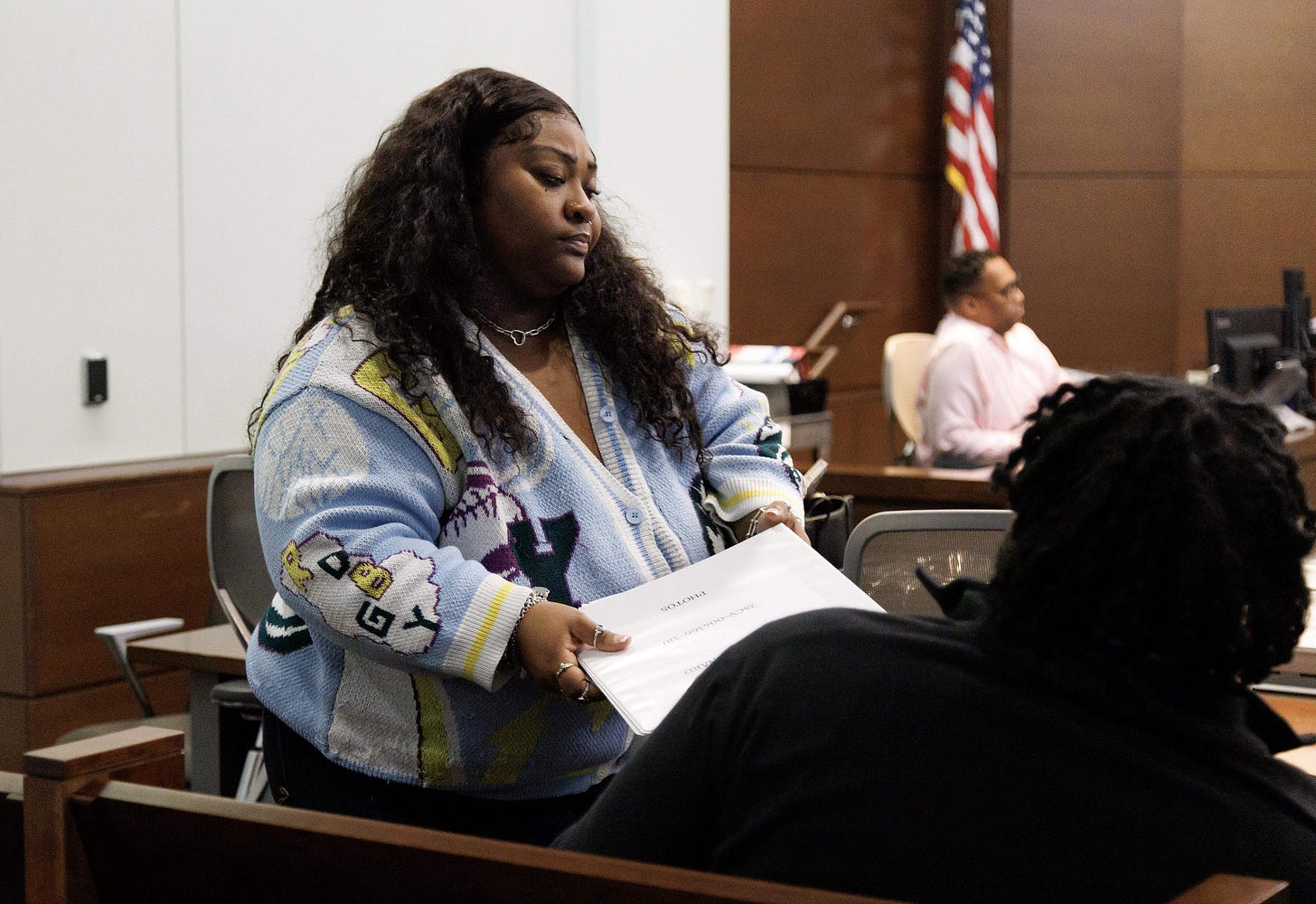From Influencer to Evidence: The Cautionary Tale of Why Every Creator Needs a Publicist
A Realtime Reputation Crash: What the Brenay Kennard Case Teaches Us About Digital Etiquette
If you’re a content creator, you are a CEO. You are the head of sales, marketing, and product development for the most important brand you’ll ever represent: yourself. And just like any Fortune 500 CEO, you need a trusted advisor to navigate crises, manage reputation, and craft a narrative that protects and enhances your value.
This isn’t a luxury. It’s a necessity. And there is no starker, more surreal example of this than the unfolded courtroom drama of Akira Montague vs. Brenay Kennard in North Carolina.
As a publicist who has watched this case from its earliest ripples on social media, it’s a masterclass in what not to do. Brenay Kennard, a content creator, represented herself pro se in an Alienation of Affection lawsuit. The very same platform that built her brand—social media—has become the primary source of evidence stacked against her. It’s a stark reminder: in the digital age, the court of public opinion and the court of law are often reading from the same transcript.
Let’s be clear: this is not about kicking someone when they’re down. This is a critical, professional analysis of a reputational meltdown that was entirely preventable. Brenay didn’t need a better social media strategy; she needed a publicist whispering in her ear, “Stop. Put the phone down.”
The Creator’s Fatal Flaw: Believing Your Own Narrative is Enough
At the heart of this case is a fundamental misunderstanding of how narratives work. Creators are storytellers. We build communities by sharing our truths, our struggles, and our triumphs. The danger arises when we believe our curated narrative will hold up in a legal setting, where facts, evidence, and procedure reign supreme.
Brenay documented her side of the story extensively online. She posted videos, shared details, and attempted to control the story by presenting her truth to her audience. In the world of PR, we call this “trying to win the headline.” But without a strategic filter, this instinctual move backfired catastrophically.
A publicist’s primary role in a crisis is to act as a buffer and a strategist. We stand between the client and the microphone. We assess every statement for not just its public perception, but its legal implications. We understand that what plays well for your followers can be a gift-wrapped piece of evidence for opposing counsel.
Had Brenay retained a publicist the moment she anticipated legal trouble, the first step would have been a digital lockdown and a strategic silence. Instead, she created a public, digital diary of the entire affair, which now serves as a treasure trove for the plaintiff’s legal team.
The Evidence is in the Feed: A Publicist’s Nightmare
Let’s break down the specific missteps from a PR perspective:
1. Creating a Discoverable Archive: Every story, every tweet, every “since you asked...” video is a discoverable document. A publicist would have advised archiving all existing content for legal review and implementing a strict moratorium on any new public posts about the situation. The goal is to stop adding fuel to the fire.
2. Muddying the Message: In trying to defend her character to her audience, Brenay likely made statements that could be contradicted by timelines, messages, or other facts. Inconsistencies, even perceived ones, are lethal to both a legal case and a public reputation. A publicist crafts a single, clear, and legally-vetted holding statement, if one is needed at all.
3. Failing to Read the Room (The Actual Room): The “room” in this context isn’t your comment section; it’s a courtroom. The tactics that generate support from a loyal audience—emotional appeals, personal attacks, detailed personal stories—are often the very things that undermine credibility before a judge. A publicist understands the different audiences and tailors the message accordingly.
4. Going Pro Se: The Ultimate PR Mistake: Representing yourself in a complex lawsuit is the professional equivalent of performing your own root canal. It signals a profound failure to understand the gravity of the situation. From a reputational standpoint, it looks chaotic and unprofessional. A publicist would have strongly advised against this, emphasizing that a strong legal team is the first and most important line of defense, which in turn protects your public reputation.
Etiquette is Strategy: A Creator’s Guide to Digital Self-Preservation
So, what should you do? How do you protect the brand you’ve worked so hard to build?
1. Pause Before You Post: In any emotionally charged situation, institute a 24-hour rule. Sleep on it. Then, ask yourself: “How could this be used against me in six months?” Assume everything you post is permanent and public.
2. Your DMs are Not Your Diary: Private messages are just as discoverable as public posts. Never put anything in a DM, text, or email that you wouldn’t want read aloud in a courtroom or printed on the front page of a newspaper.
3. Secure Your Counsels: Before a crisis hits, have your team in place. This means:
A Lawyer: For contractual and legal protection.
A Publicist: For reputational strategy and crisis management.
Your publicist and lawyer should be able to work in tandem. The publicist ensures your public actions don’t hurt your legal case, and the lawyer ensures the legal strategy supports your long-term brand health.
4. When in Crisis, Get Quiet and Get Counsel: The moment you sense a situation escalating, your first call should be to your publicist and lawyer—not your followers. The instinct to explain is natural, but it is often professionally suicidal. Let your advisors guide you on when, how, and if you should speak.
5. Understand the Difference Between Sympathy and Strategy: Your audience can offer sympathy, which feels good in the moment. Your advisors offer strategy, which protects your future. Always prioritize strategy over the temporary comfort of public validation.
The Unraveling of a Brand in Realtime
Watching Brenay Kennard’s journey has been, as I said, surreal. It’s a slow-motion case study of a personal brand unraveling because the creator believed she was the best person to manage her own crisis. She trusted her narrative over professional strategy.
The result? A seemingly endless stream of negative evidence, a failed legal defense, and a reputation that will be incredibly difficult to rehabilitate.
For creators, your reputation is your currency. A publicist is not an expense; it’s an insurance policy on that currency. We are the objective voice that tells you the hard truths you don’t want to hear. We are the architects of your comeback when things go wrong. And most importantly, we are the strategists who ensure you never have to face a courtroom—or the court of public opinion—without a plan.
Let Brenay’s story be the ultimate cautionary tale. Build your brand, but protect it with the same professionalism you used to create it. Your future self will thank you.
Stiletto Step-Back:
Your narrative is powerful, but it is not a legal defense.
Strategy will always outperform emotion in a crisis.
Your publicist is the guardian of your reputation, the one who tells you to put the phone down when you need to hear it most.




